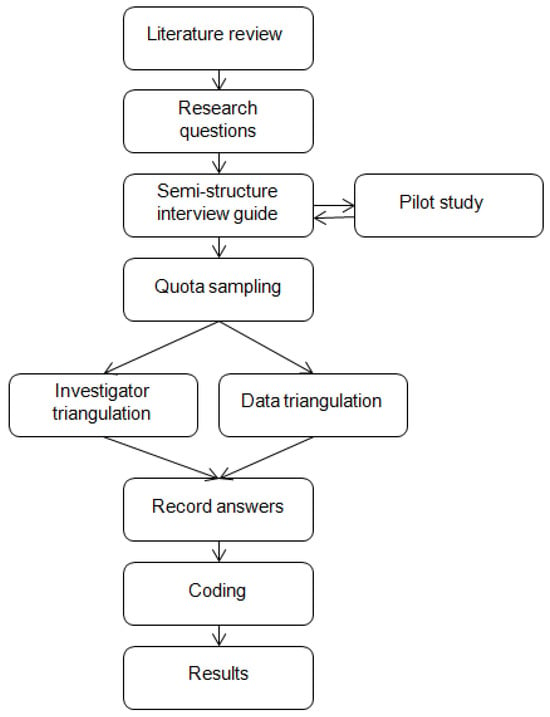Journal Description
Tourism and Hospitality
Tourism and Hospitality
is an international, peer-reviewed, open access journal on all aspects of tourism and hospitality, published quarterly online by MDPI.
- Open Access— free for readers, with article processing charges (APC) paid by authors or their institutions.
- High Visibility: indexed within Scopus, EBSCO, and other databases.
- Rapid Publication: manuscripts are peer-reviewed and a first decision is provided to authors approximately 24.6 days after submission; acceptance to publication is undertaken in 4.8 days (median values for papers published in this journal in the second half of 2023).
- Recognition of Reviewers: APC discount vouchers, optional signed peer review, and reviewer names published annually in the journal.
Latest Articles
Trade Fairs, Host Cities and Tourism Development: The Case of Thessaloniki, Greece
Tour. Hosp. 2024, 5(2), 333-353; https://doi.org/10.3390/tourhosp5020022 - 12 Apr 2024
Abstract
The literature has mainly focused on the significant business opportunities that companies obtain from their participation in trade fairs while less interest has been given to their impacts on the host regions. However, trade fairs are events with complex socio-spatial dimensions and an
[...] Read more.
The literature has mainly focused on the significant business opportunities that companies obtain from their participation in trade fairs while less interest has been given to their impacts on the host regions. However, trade fairs are events with complex socio-spatial dimensions and an important scope of urban governance that need further analysis. The purpose of this article is to investigate the attitudes, opinions and representations of the exhibitors and visitors of the trade fairs in Thessaloniki, regarding the trade fair itself and its efficiency, the city of Thessaloniki as a destination, as well as the relationship between trade fairs and the city. The method of collecting qualitative material and information involved in-depth interviews with a semi-structured interview guide, while quota sampling was used. In total, 103 interviews were conducted at the trade fairs of Zootechnia and Detrop. Results show that the effect of trade fair activity on the city of Thessaloniki is strong and multi-layered. Also, the relationship between trade fair activity and the city is interactive and two-way, as one feeds and is powered by the other. Moreover, the need for coordination and cooperation between local agencies in an urban governance framework was highlighted.
Full article
(This article belongs to the Collection State-of-the-Art Reviews in Tourism and Hospitality)
►
Show Figures
Open AccessArticle
The Great Canadian (Electric) Road Trip: Evaluating EV Use in National Park Tourism
by
Natalie L. B. Knowles, Daniel Scott and Samuel Mitchell
Tour. Hosp. 2024, 5(2), 314-332; https://doi.org/10.3390/tourhosp5020021 - 11 Apr 2024
Abstract
►▼
Show Figures
As part of its 2050 net zero emission commitment, Canada has a mandate to transition to electric vehicles (EVs) to decarbonize transportation. While the EV charging infrastructure is expanding in urban areas, the infrastructure for inter-city and nature-based tourism has not been assessed.
[...] Read more.
As part of its 2050 net zero emission commitment, Canada has a mandate to transition to electric vehicles (EVs) to decarbonize transportation. While the EV charging infrastructure is expanding in urban areas, the infrastructure for inter-city and nature-based tourism has not been assessed. This study combined four metrics of feasibility and convenience into an EV readiness index to evaluate 94 road trip itineraries associated with Canada’s iconic national parks. Index scores ranged from not possible (0) to equal to the travel experience of internal combustion vehicle (20). With the summer range, the average one-day route score was 19.2, as 82% of one-day itineraries could be completed without requiring additional charging. Multi-day routes scored lower (14.0), with 24% being highly inconvenient or impossible due to gaps between charging stations. With a reduced winter EV range, average index scores for one- and multi-day trips declined as charging needs increased (18.4 and 13.2, respectively). Across the 94 travel routes, EVs were estimated to produce only 17% of the carbon dioxide emissions of internal combustion vehicles (this was much lower in some provinces). The findings also highlight key regional differences in tourism EV readiness and where infrastructure is needed to provide equitable access to Canada’s national parks for tourists seeking to decarbonize their holiday travel.
Full article
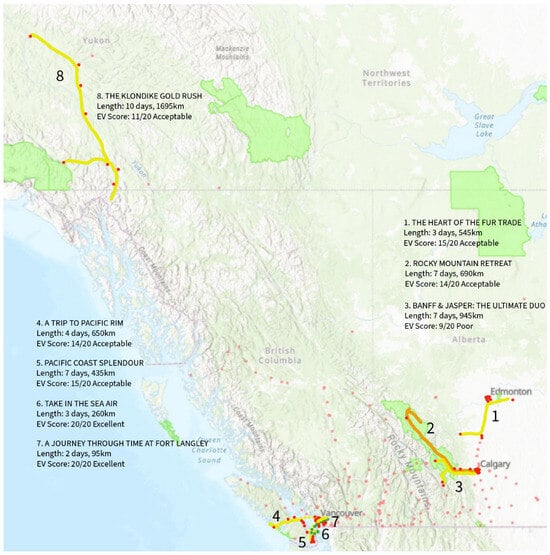
Figure 1
Open AccessArticle
Be Direct! Restaurant Social Media Posts to Drive Customer Engagement in Times of Crisis and Beyond
by
Daphnée Manningham, Hugo Asselin and Benoit Bourguignon
Tour. Hosp. 2024, 5(2), 304-313; https://doi.org/10.3390/tourhosp5020020 - 09 Apr 2024
Abstract
Restaurants were significantly shaken by the COVID-19 pandemic, which forced them to intensify their use of social media to communicate with customers. Our objective was to identify which digital marketing strategies generated higher customer engagement during the pandemic, according to variations in the
[...] Read more.
Restaurants were significantly shaken by the COVID-19 pandemic, which forced them to intensify their use of social media to communicate with customers. Our objective was to identify which digital marketing strategies generated higher customer engagement during the pandemic, according to variations in the intensity of sanitary restrictions. We manually extracted 639 Facebook posts by 16 restaurants in two Canadian cities (one in a metropolitan area, one in a peripheral region), and coded them according to type of verbal move, format (image, text), and emoji use. The engagement rate was two times higher for restaurants in the metropolitan area, which also used three times more emojis per post on average. The engagement rate was also five times higher for nationally branded restaurants than for independent restaurants. When the pandemic hit, restaurants started to use more text and more directive verbal moves to convey crucial and precise information to customers, notably about sanitary restrictions. Emojis and expressive verbal moves also helped increase customer engagement. While being direct was more efficient in times of crisis, directive verbal moves continued to be used after most sanitary restrictions were lifted. Being direct, thus, appears to be a good digital marketing strategy in the “new normal”.
Full article
(This article belongs to the Special Issue Strategies for Tourism and Hospitality after COVID-19)
►▼
Show Figures
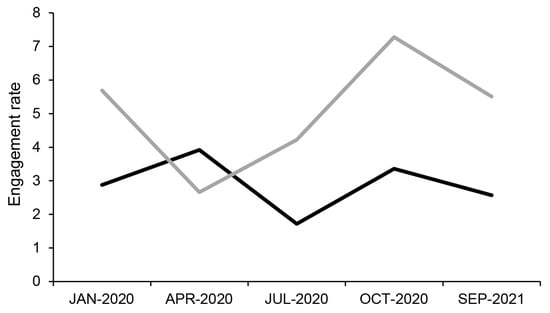
Figure 1
Open AccessArticle
Pandemic and Economy: An Econometric Analysis Investigating the Impact of COVID-19 on the Global Tourism Market
by
Ioannis-Panagiotis Varzakas and Theodore Metaxas
Tour. Hosp. 2024, 5(2), 290-303; https://doi.org/10.3390/tourhosp5020019 - 04 Apr 2024
Abstract
►▼
Show Figures
With the outbreak of the COVID-19 pandemic, the global tourism market has become one of the most affected sectors of the economy. In this research, the literature on the economic effects created by COVID-19 on a global level is first studied and the
[...] Read more.
With the outbreak of the COVID-19 pandemic, the global tourism market has become one of the most affected sectors of the economy. In this research, the literature on the economic effects created by COVID-19 on a global level is first studied and the measures and restrictions that governments are obliged to take in order to suppress and prevent the spread of the coronavirus are analyzed. Next, there is an attempt to empirically estimate a system of equations regarding the two channels of influence of COVID-19 on tourism, making use of cross-sectional data, and specifically for a sample of 38 countries that launched vaccination up until the end of 2020. The explained results confirm that tourism is directly affected by the spread of COVID-19, due to the effort of travelers to avoid illness, but also due to the measures taken by governments to limit it. Tourism is also indirectly affected, due to the negative impact on income. Using 3SLS, an equation was developed to calculate the direct and indirect impact of COVID-19 on tourism. Notably, the dependent variable (tourism expenditure) exhibited a positive correlation with the independent variable (GDP) and a negative correlation with the total COVID-19 cases. Consequently, it was determined that a unit increase in the COVID-19 variable led to a reduction in international tourism expenditure by USD 859,237. Finally, there is a concern, and further investigation is needed, regarding the effect of vaccination against COVID-19 on tourism, which, while it is expected to be negative, is not confirmed by the results.
Full article
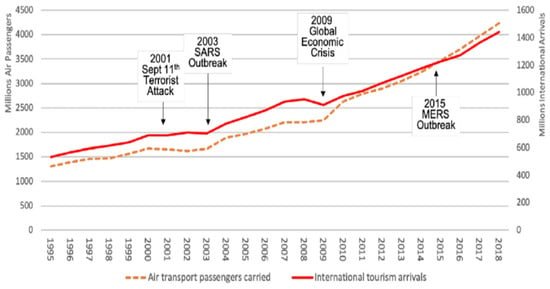
Figure 1
Open AccessArticle
Chatbot Service Quality: An Experiment Comparing Two Countries with Different Levels of Digital Literacy
by
Julio Vena-Oya, José Alberto Castañeda-García and Jan Burys
Tour. Hosp. 2024, 5(2), 276-289; https://doi.org/10.3390/tourhosp5020018 - 31 Mar 2024
Abstract
►▼
Show Figures
The use of new technologies in tourism is bringing about a genuine revolution in the sector, where automated services, such as chatbots, are increasingly being used to perform some of the tasks involved in service delivery. However, the emergence of new technologies in
[...] Read more.
The use of new technologies in tourism is bringing about a genuine revolution in the sector, where automated services, such as chatbots, are increasingly being used to perform some of the tasks involved in service delivery. However, the emergence of new technologies in a sector as globalized as tourism can mean that not all users are able to perceive the benefits of these innovations. Therefore, the aim of this study is to determine whether the digital literacy (DL) of a tourist may lead to different evaluations of the quality of the electronic service they received, both overall and as per the different dimensions of quality. This study compares a more innovative and interactive service-provision technology (a chatbot) with a more traditional one (email). To this end, an experiment was conducted in which 124 participants from Spain (higher DL) and the Czech Republic (lower DL) were asked to interact with these two technologies in a simulated hotel customer-service scenario. The results show that individuals with higher DL rated the quality of service received via chatbot higher than individuals with lower DL. The latter prefer email because they perceived it to provide greater security, empathy, reliability, and information quality. However, participants with higher DL preferred the chatbot due to its greater competence in completing the task. Finally, the participants rated the responsiveness of the chatbot higher than that of email. These results can help the introduction of chatbot-based customer service in the tourism sector.
Full article
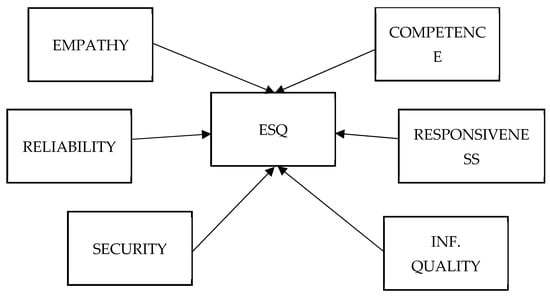
Figure 1
Open AccessArticle
Authentic Romanian Gastronomy—A Landmark of Bucharest’s City Center
by
Ana-Irina Lequeux-Dincă, Mihaela Preda and Iuliana Vijulie
Tour. Hosp. 2024, 5(2), 251-275; https://doi.org/10.3390/tourhosp5020017 - 28 Mar 2024
Abstract
►▼
Show Figures
Gastronomy represents one of the main defining national cultural elements and is essential for shaping territorial identities and for tourism development, attracting both domestic and international tourists. The landscape in the center of Bucharest has gradually changed under the influence of entrepreneurial initiatives
[...] Read more.
Gastronomy represents one of the main defining national cultural elements and is essential for shaping territorial identities and for tourism development, attracting both domestic and international tourists. The landscape in the center of Bucharest has gradually changed under the influence of entrepreneurial initiatives within the hospitality industry, showing at present a rather cosmopolitan urban environment. Despite the significant number of international catering units, better adapted to global tastes, Romanian-themed restaurants represent a landmark of the capital city. In this context, our study focuses on the Romanian authentic local gastronomy offered by the themed traditional restaurants in the center of Bucharest as a stimulating factor for different types of consumers. Aiming to answer several research questions, this research has a complex multi-fold methodological approach, appealing to triangulation which gathered, as main analytic methods, mapping, semantic analyses, and text visualisation, and the interview method (originally and appropriately applied for this case study to experienced employees). The main results show a complex gastronomic landscape that gathers various types of restaurants but outlines those with a Romanian ethnic theme in the center of Bucharest. The study of Romanian restaurants’ menus reveals elements of authenticity (e.g., traditional dishes and their regional denominations, local rural ingredients, old recipes, and cuisine techniques) as factors of attractiveness for consumers and as competitive advantages in their market. Moreover, interviews with staff representatives outline restaurants’ atmosphere, originality, and price–quality ratio of their food as the main attractive elements for both autochtonous customers and tourists and which offer an advantage in the market. The present study may interest multiple stakeholders, focusing on the development and evolution of the hospitality industry in Romania.
Full article
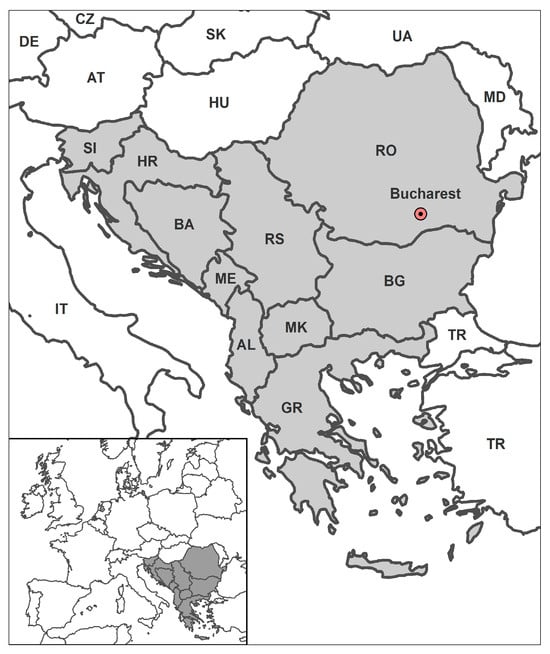
Figure 1
Open AccessArticle
Psychometrics of Emotional Intelligence in Hospitality: A Cross-Sectional Study on Human Capital and Quality of Service
by
Alberto Sanz-García, Almudena Ros-Martínez, Ana López-Navas and Miguel Puig-Cabrera
Tour. Hosp. 2024, 5(1), 237-250; https://doi.org/10.3390/tourhosp5010016 - 21 Mar 2024
Abstract
►▼
Show Figures
Little research has been conducted specifically on emotional intelligence (EI) and perceived quality of service in the hospitality industry. The main goal of this research consists of providing empirical evidence related to EI regarding its importance in quality of hospitality service (QHS). To
[...] Read more.
Little research has been conducted specifically on emotional intelligence (EI) and perceived quality of service in the hospitality industry. The main goal of this research consists of providing empirical evidence related to EI regarding its importance in quality of hospitality service (QHS). To do so, a hypothetical and conceptual model was tested by Partial Least Square-Structural Equation Modeling (PLS-SEM) techniques based on a sample of 408 employees in the hospitality sector in the region of Murcia (Spain). The findings of this work reveal the incidence that EI has on the QHS of human capital, despite a scenario that is characterized by a high rate of talent shortage worldwide and an increasing digitalization that could reduce human interaction. Also, implications are given so that EI could be more deeply analyzed for EI strategy-building within organizational behavior and human resource management areas from a practical approach, increasing engagement and preventing the so-called quality service sabotage.
Full article
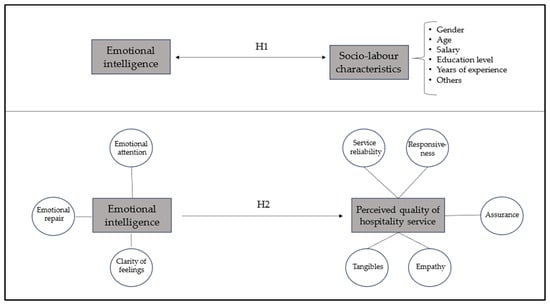
Figure 1
Open AccessArticle
Building the Framework for Sustainable Tourism in Príncipe Island
by
Francisco Silva and Miguel Roque
Tour. Hosp. 2024, 5(1), 225-236; https://doi.org/10.3390/tourhosp5010015 - 21 Mar 2024
Abstract
Like many other Small Island Developing States, São Tomé and Príncipe’s economy faces major weaknesses and constraints. These challenges are especially marked on the island of Príncipe, owing to its small size and double insularity. In recent decades, tourism, driven by international investment,
[...] Read more.
Like many other Small Island Developing States, São Tomé and Príncipe’s economy faces major weaknesses and constraints. These challenges are especially marked on the island of Príncipe, owing to its small size and double insularity. In recent decades, tourism, driven by international investment, has become a strategic sector for territorial development. This study assesses the suitability of this exogenous model and explores the feasibility of adopting a progressive change to a more community-centered tourism development model. Extensive fieldwork and multi-stakeholder collaboration have highlighted the need for a holistic, multi-dimensional strategy to secure this change. Such a strategy would prioritize local skills enhancement, infrastructure improvement, better governance and the diversification of tourism products and experiences. The gradual shift to a more endogenous approach in tourism development aims to strengthen sustainability across its multiple dimensions, ensuring more substantial and direct benefits for the local community and adding value to tourist services and experiences.
Full article
(This article belongs to the Special Issue Small Island Developing Countries (SIDS): Tourism between Innovation and Authenticity for Better Sustainable Developing Paths)
►▼
Show Figures
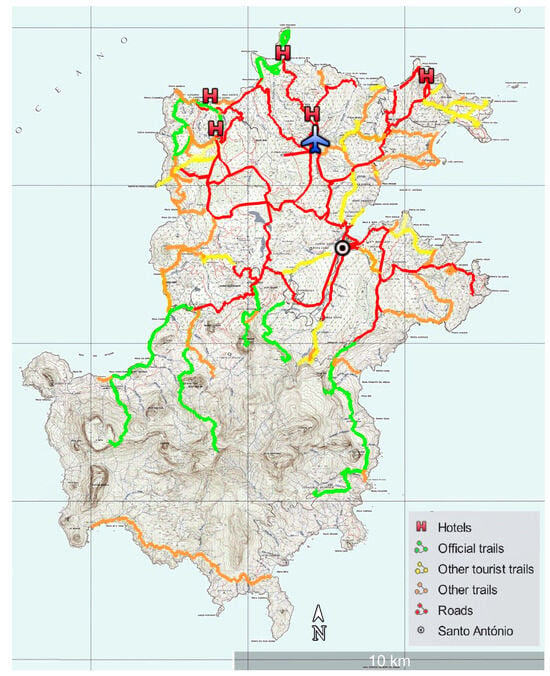
Figure 1
Open AccessArticle
Challenges to Cracking the Glass Ceiling among Saudi Women in the Tourism Industry
by
Abu Elnasr E. Sobaih and Ahmed E. Abu Elnasr
Tour. Hosp. 2024, 5(1), 203-224; https://doi.org/10.3390/tourhosp5010014 - 12 Mar 2024
Abstract
Women’s participation in the tourism workforce is growing intensely in response to Saudi Vision 2030. Notwithstanding this, Saudi women still have limited access to senior management positions. This study explores the barriers that Saudi women face to reach top managerial positions in the
[...] Read more.
Women’s participation in the tourism workforce is growing intensely in response to Saudi Vision 2030. Notwithstanding this, Saudi women still have limited access to senior management positions. This study explores the barriers that Saudi women face to reach top managerial positions in the tourism industry and explores how Saudi women could crack the glass ceiling. For these reasons, this study undertook a phenomenological approach using in-depth interviews with Saudi women who were able to reach senior management. The purpose of the interviews is to explore their lived experience and their accessibility to senior management positions. The results of a thematic analysis showed that there were four overlapped barriers for the glass ceiling among Saudi women: cultural and social barriers, regulatory barriers, organizational barriers, and personal barriers. These main barriers have sub-barriers that contribute to the glass ceiling and prevent many women from reaching senior positions. This study shows that overcoming these barriers, particularly cultural and social barriers, could help Saudi women to crack the glass ceiling and achieve their dream of leadership. This study discusses the implications for policy makers, academics, and practitioners on the effective contribution of Saudi women to the tourism labor market, which contributes to sustainable tourism development and, ultimately, to Saudi Vision 2030.
Full article
Open AccessArticle
Climate Change and the Future of Ski Tourism in Canada’s Western Mountains
by
Natalie L. B. Knowles, Daniel Scott and Robert Steiger
Tour. Hosp. 2024, 5(1), 187-202; https://doi.org/10.3390/tourhosp5010013 - 08 Mar 2024
Abstract
Winter, snow, and mountains, epitomized by the world-renowned Rocky Mountain range, are an integral part of Canada’s sport-culture identity and international tourism brand, yet the climate change risk posed to this important ski tourism region remains uncertain. This study used the ski operations
[...] Read more.
Winter, snow, and mountains, epitomized by the world-renowned Rocky Mountain range, are an integral part of Canada’s sport-culture identity and international tourism brand, yet the climate change risk posed to this important ski tourism region remains uncertain. This study used the ski operations model SkiSim 2.0 to analyze the climate risk for the region’s ski industry (26 ski areas in the province of Alberta and 40 in British Columbia) with advanced snowmaking, including changes in key performance metrics of ski season length, snowmaking requirements, holiday operations, and lift and terrain capacity. If Paris Climate Agreement targets are met, average seasons across all ski areas decline 14–18% by mid-century, while required snowmaking increases 108–161%. Regional average operational terrain declined only 4–9% in mid-century, as the largest ski areas were generally more climate resilient. More pronounced impacts are projected under late-century, high-emission scenarios and in low latitudes and coastal British Columbia regions. When compared with continental and international ski tourism markets, Western Canada has relatively lower climate change impacts, which could improve its competitiveness. The results inform further research on demand-side as well as the winter sport-tourism industry and destination-scale climate change adaptation and mitigation strategies.
Full article
(This article belongs to the Special Issue Climate Change Risk and Climate Action)
►▼
Show Figures

Figure 1
Open AccessArticle
Understanding Solo Female Travellers in Canada: A Two-Factor Analysis of Hotel Satisfaction and Dissatisfaction Using TripAdvisor Reviews
by
Feiyan Zhou, Shuyue Huang and Maria Matthews
Tour. Hosp. 2024, 5(1), 167-186; https://doi.org/10.3390/tourhosp5010012 - 05 Mar 2024
Abstract
►▼
Show Figures
This study aims to understand solo female travellers’ hotel experiences in Canada by analyzing online reviews from TripAdvisor. We employed keywords such as “solo female” and “single female” to identify online reviews, followed by a manual review process to confirm their relevance and
[...] Read more.
This study aims to understand solo female travellers’ hotel experiences in Canada by analyzing online reviews from TripAdvisor. We employed keywords such as “solo female” and “single female” to identify online reviews, followed by a manual review process to confirm their relevance and eliminate duplicates. The final dataset included 240 reviews from 188 lodging establishments, totalling 49,924 words. Employing Herzberg’s two-factor theory and NVivo, we generated codes and categorized them into 29 satisfiers and 24 dissatisfiers. These were grouped into five key components impacting guests’ experiences: room, staff, hotel facilities and cleanliness, hotel amenities, and others. The top three satisfiers identified in traditional accommodations are safety, staff helpfulness, and location, while room dirtiness, insecurity, and room amenities are the primary dissatisfiers. Conversely, alternative lodgings reveal a distinct pattern, with location, room amenities, and staff friendliness as top satisfiers, and room amenities, neighbourhood, and service unavailability as leading dissatisfiers. The study found that alternative accommodations may offer a broader range of experiences, potentially due to their less-standardized nature and diversity of options. This research enhances understanding of solo female travellers, gender differences in hotel experiences, and customer satisfaction, underscoring the tourism industry’s need to address this demographic’s unique needs and concerns.
Full article
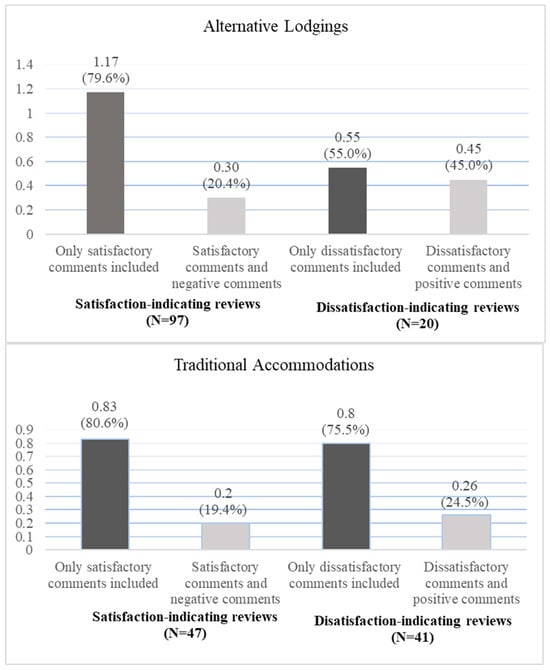
Figure 1
Open AccessCommunication
Compete or Avoid? Assessing Brand Competition Strategies with Spatial Colocation Analysis
by
Lijuan Su, Andrei Kirilenko and Svetlana Stepchenkova
Tour. Hosp. 2024, 5(1), 160-166; https://doi.org/10.3390/tourhosp5010011 - 26 Feb 2024
Abstract
►▼
Show Figures
Spatial competition considerations are important in hotel location selection. This study proposes and demonstrates a method of colocation network analysis to quantify the potential encroaching effect of spatial inter- and intra-competition between units of business brands that seek expansion. The environmental context of
[...] Read more.
Spatial competition considerations are important in hotel location selection. This study proposes and demonstrates a method of colocation network analysis to quantify the potential encroaching effect of spatial inter- and intra-competition between units of business brands that seek expansion. The environmental context of the study is a network of the top five budget hotel brands in the Beijing hotel market. The results reveal that brands implement different strategies in their hotel placement, which are subject to different levels of the encroaching effect. However, the method is applicable in a variety of hospitality settings, specifically in those that involve the development strategies of chain brands. The simulation capability of the method can assist hospitality brands in assessing the outcomes of a proposed development and, thus, aid hoteliers in the spatial allocation of new units with the least adverse effects on their existing business networks.
Full article
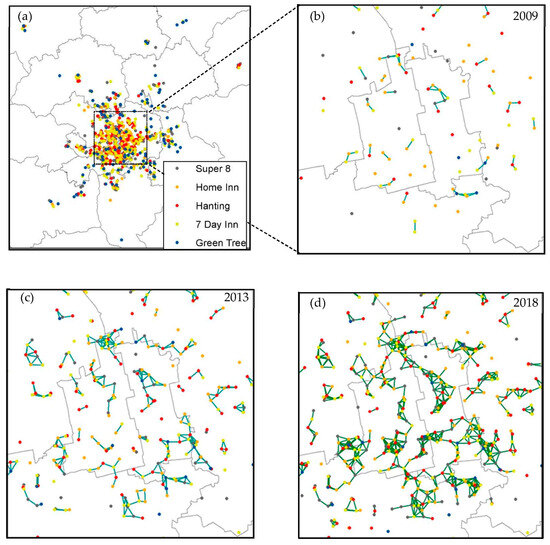
Figure 1
Open AccessArticle
The Consolidation Stage of the Tourism Area Life Cycle (TALC) Model: The Case of Ibiza from 1977 to 2000
by
José Ramón-Cardona and María Dolores Sánchez-Fernández
Tour. Hosp. 2024, 5(1), 148-159; https://doi.org/10.3390/tourhosp5010010 - 18 Feb 2024
Abstract
Ibiza is an island in the Western Mediterranean internationally known as a sun and beach tourist destination, and it is notable for its nightclubs. This fact is the result of a century of tourist history that began in the first third of the
[...] Read more.
Ibiza is an island in the Western Mediterranean internationally known as a sun and beach tourist destination, and it is notable for its nightclubs. This fact is the result of a century of tourist history that began in the first third of the 20th century and reached its maximum data at the end of that century and the beginning of the 21st century. Using the tourism area life cycle (TALC) model as a reference, it is possible to affirm that Ibiza has already gone through most of the stages proposed by the TALC. The objective of this work is to undertake a historical approach to the events and context that this island experienced during the period that could be considered to be a consolidation stage (1977 to 2000), which is still little analyzed. During this period, demand growth continued, although at a slower pace than in the previous stages, and suffered the first major crisis. The regional administration had to face the errors of the previous decades with various legal actions as follows: the limitation of the accommodation supply, which was already oversized by that stage; the environmental protection of spaces that had not yet been affected by urban development; the modernization of the offerings, much of them being obsolete and degraded; and the diversification of the issuing markets, which had until then been focused on Germany and the United Kingdom. The economic crisis of the early 1990s was a turning point for the tourism sector, both in terms of administrations and companies, and quantitative growth was replaced by qualitative growth in the following years. Starting in 2000, tourism in Ibiza entered a new phase characterized by the modernization of the offerings and the stagnation of data.
Full article
Open AccessArticle
Analysis of Latin American Theme Parks in a Tourism Context
by
Lázaro Florido-Benítez
Tour. Hosp. 2024, 5(1), 124-147; https://doi.org/10.3390/tourhosp5010009 - 07 Feb 2024
Abstract
►▼
Show Figures
The main goal of this manuscript is to analyse Latin American theme parks as tourist attractions for stimulating future tourism demand after the pandemic crisis. The methodology used in this study is a set of qualitative and quantitative indicators for measuring the most
[...] Read more.
The main goal of this manuscript is to analyse Latin American theme parks as tourist attractions for stimulating future tourism demand after the pandemic crisis. The methodology used in this study is a set of qualitative and quantitative indicators for measuring the most visited Latin American parks from 2011 to 2022 and where they are localised to address the importance of the location of these theme parks and the cities in which they are operating. The results reveal that Latin American parks such as Six Flags Mexico, Beto Carrero World, Hopi Hari, La Feria de Chapultepec and Parque Xcaret are tourist attractions that promote and improve the tourism industry in Latin American cities, and their entertainment activities attract millions of visitors each year. One of the most important findings from this study is that the bus is the primary and most efficient (regarding travel time) mode of transportation in the cities analysed, as well as that there is a high correlation between the success of tourist attractions, their accessibility by plane and on land and their distance to Latin American cities. Moreover, this research constitutes an empirical illustration of the importance of theme parks in cities as tourist attractions and provides a new emerging contribution to the literature on the relationship between theme parks and the means of transportation at tourist destinations.
Full article
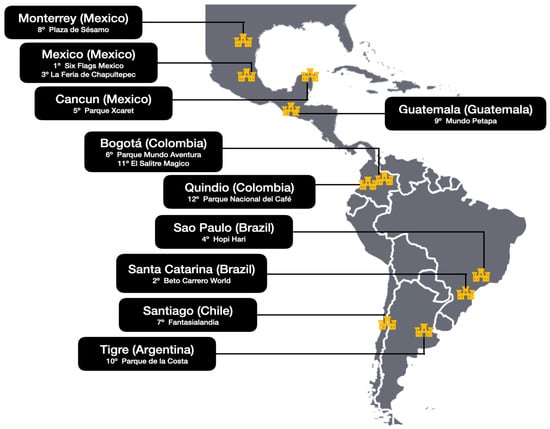
Figure 1
Open AccessArticle
Examining Cross-Industry Clusters among Airline and Tourism Industries
by
Sotiroula Liasidou
Tour. Hosp. 2024, 5(1), 112-123; https://doi.org/10.3390/tourhosp5010008 - 06 Feb 2024
Abstract
►▼
Show Figures
Cross-industry clusters are essential for the economic prosperity of a region. However, studies do not address competitive clusters among the airline and tourism industries. Thus, this paper considers the case of both industries in terms of the clusters and synergies formed. This research
[...] Read more.
Cross-industry clusters are essential for the economic prosperity of a region. However, studies do not address competitive clusters among the airline and tourism industries. Thus, this paper considers the case of both industries in terms of the clusters and synergies formed. This research aim is to provide an understanding of both industries’ protagonists’ involvement in contributing to insights into the establishment of synergies or clusters among the two industries. Cyprus is highly dependent on tourism and airlines because they facilitate connectivity. The research comprises semi-structured interviews with the leading players and organizations of the airline and tourism industries (government bodies, airports, airlines, tour operators and hotels). The results indicate that in a small geographical context, the notion of clusters involves a synergetic relationship among tourism stakeholders. The airlines’ role is essential and affects all stakeholders involved in tourism. Additionally, the research provides new insights into the role of Destination Management Organisations (DMOs) in providing applicable tourism policies that can positively impact effective cooperation among industry partners.
Full article
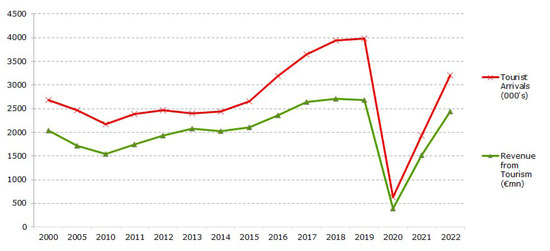
Figure 1
Open AccessArticle
Codes of Conduct at Zoos: A Case Study of the Chengdu Research Base of Giant Panda Breeding
by
David Fennell and Yulei Guo
Tour. Hosp. 2024, 5(1), 95-111; https://doi.org/10.3390/tourhosp5010007 - 05 Feb 2024
Abstract
Zoos consistently implement codes of conduct in efforts to manage visitor behaviour. However, few studies have examined the use of the codes of conduct in zoos, even though they carry significant ethical implications regarding the relationship between humans and animals in society. This
[...] Read more.
Zoos consistently implement codes of conduct in efforts to manage visitor behaviour. However, few studies have examined the use of the codes of conduct in zoos, even though they carry significant ethical implications regarding the relationship between humans and animals in society. This study provides an explorative investigation into the use of codes of conduct at the Chengdu Research Base of Giant Panda Breeding (Panda Base). Positioning the Panda Base as a place to negotiate the boundaries between humans and animals, this study surveyed visitors’ initial engagement with the Base’s code of conduct, their compliance with the code, and their assessment of the code. The findings point to a significant disparity between how visitors engage with and perceive the value of the code, which failed to prevent visitors from having close contact with animals at the Panda Base. We argue that Foucault’s philosophy on taboos in modern society can help us understand the ineffectiveness of the codes of conduct in zoos. However, Kant’s philosophy can orient human-animal interactions more ethically and provide an opportunity to consider the significance of codes of conduct in zoos. Suggestions for improving the effectiveness of codes of conduct at zoos are provided.
Full article
(This article belongs to the Special Issue Managing Tourism and Recreation in Parks and Protected Areas)
►▼
Show Figures
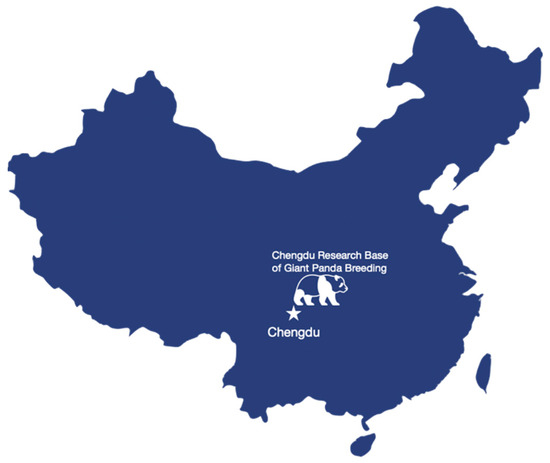
Figure 1
Open AccessArticle
Cape Verde: Islands of Vulnerability or Resilience? A Transition from a MIRAB Model into a TOURAB One?
by
Eduardo Moraes Sarmento and Ana Lorga da Silva
Tour. Hosp. 2024, 5(1), 80-94; https://doi.org/10.3390/tourhosp5010006 - 02 Feb 2024
Abstract
Small island developing states (SIDSs) traditionally face a set of challenges like the weak and highly fragile economic configuration, environmental issues, and a traditional dependence on a few economic activities forcing them to open the economy to the exterior. Therefore, their development model,
[...] Read more.
Small island developing states (SIDSs) traditionally face a set of challenges like the weak and highly fragile economic configuration, environmental issues, and a traditional dependence on a few economic activities forcing them to open the economy to the exterior. Therefore, their development model, like in Cape Verde, depends on migration, remittances, dependence on aid, tourism, and state employment. The current research offers an insight into the nature of Cape Verde’s economy as a SIDS economy and the degree to which the country has been relying on tourism receipts, external remittances from migrations, aid programs, and government services. Understanding Cape Verde’s development model is important to clarify the challenges the country faces and its development needs to gather a long-term resilience and to understand if it is changing from a MIRAB (Migrations, Remittances, Aid, and Bureaucracy) model into another one.
Full article
(This article belongs to the Special Issue Small Island Developing Countries (SIDS): Tourism between Innovation and Authenticity for Better Sustainable Developing Paths)
►▼
Show Figures
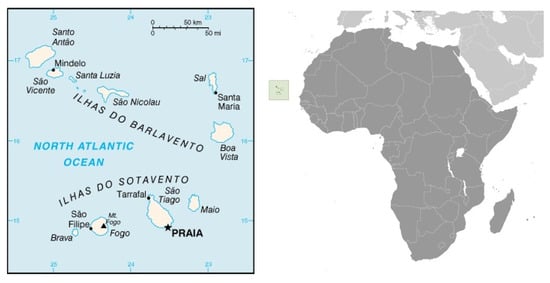
Figure 1
Open AccessArticle
The Spatial Structure and Influencing Factors of the Tourism Economic Network in the Yangtze River Delta Urban Agglomeration
by
Xiao Feng, Chang Pan and Fengying Xu
Tour. Hosp. 2024, 5(1), 60-79; https://doi.org/10.3390/tourhosp5010005 - 01 Feb 2024
Abstract
The optimization of a tourism economic network is critical in the promotion of the high-quality development of a regional tourism economy. In order to explore the spatial network structure of the tourism economy of the Yangtze River Delta urban agglomeration and its influencing
[...] Read more.
The optimization of a tourism economic network is critical in the promotion of the high-quality development of a regional tourism economy. In order to explore the spatial network structure of the tourism economy of the Yangtze River Delta urban agglomeration and its influencing factors, this study used a modified gravity model and social network analysis methods for evaluation and analysis. The results show the following: (1) the spatial network of the tourism economy in the Yangtze River Delta urban agglomeration in 2016–2021 was characterized by significant non-equilibrium; however, that trend has weakened, and the tourism connections are now stronger in economically developed regions. (2) The density of the network structure was slightly strengthened. The structure of the tourism economy network shows an obvious core–periphery distribution pattern. The external radiation of the center city was enhanced, and the core area of the network expanded. (3) The concept of the “small world” is characterized by a significant evolution from five major associations to four major associations during the study period. (4) The quadratic assignment method (QAP) of regression analysis showed that tourism service reception capacity, tourism information flow, tourism resource endowments and transportation convenience make a significant contribution to the formation of the spatial network of inter-city tourism economic connections. The results of this study can provide a theoretical basis for the optimization of the tourism economic network of urban agglomerations and the scientific decision-making underpinning tourism economic cooperation.
Full article
(This article belongs to the Special Issue Nature-Based Solutions in Tourism and Hospitality)
►▼
Show Figures
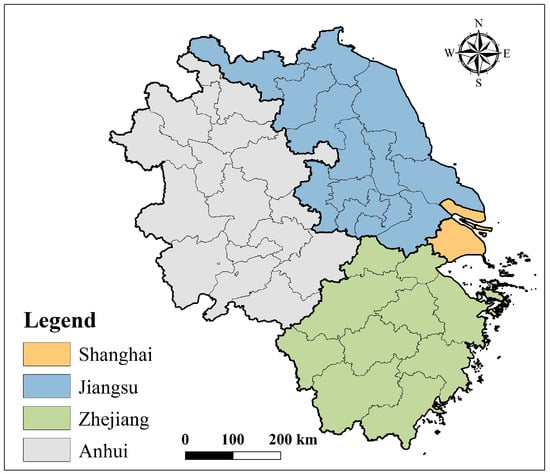
Figure 1
Open AccessCommunication
Building Tourism Resilience through Communication
by
Sara Brune, Whitney Knollenberg and Olivia Vilá
Tour. Hosp. 2024, 5(1), 51-59; https://doi.org/10.3390/tourhosp5010004 - 31 Jan 2024
Abstract
The impact of the COVID-19 crisis on the tourism industry called attention to how crucial it is for tourism operations to be resilient, as their ability to overcome crises also impacts communities and adjacent industries. The communication theory of resilience argues that resilience
[...] Read more.
The impact of the COVID-19 crisis on the tourism industry called attention to how crucial it is for tourism operations to be resilient, as their ability to overcome crises also impacts communities and adjacent industries. The communication theory of resilience argues that resilience is a dynamic capability that can be developed through communication processes. Exploring the role of communication processes in building resilience is important to establishing holistic strategies that strengthen the tourism industry. This work applies the communication theory of resilience to explore the employment of communication processes by agritourism operators during the COVID-19 pandemic. Seven agritourism operators in North Carolina, USA, were interviewed about resilience strategies at three points in time in 2020. These interviews revealed the value of communication processes in building resilience in agritourism operations and the facilitating role of communication technologies. These findings reveal that resilience is built collaboratively through social engagement and interaction.
Full article
Open AccessArticle
Building the Virtual Dancefloor: Delivering and Experiencing House Music Events in the Time of COVID-19
by
Alex W. Grebenar
Tour. Hosp. 2024, 5(1), 32-50; https://doi.org/10.3390/tourhosp5010003 - 23 Jan 2024
Abstract
The COVID-19 pandemic and its consequent social lockdowns necessitated an immediate cessation of events, replaced entirely by virtual events—a concept present in the existing events literature, but one not fully conceptualised. This article explores the virtual event experience during the pandemic through the
[...] Read more.
The COVID-19 pandemic and its consequent social lockdowns necessitated an immediate cessation of events, replaced entirely by virtual events—a concept present in the existing events literature, but one not fully conceptualised. This article explores the virtual event experience during the pandemic through the lens of a case study, Love to Be events, a long-established house music brand which produced a series of successful virtual events during the lockdowns and beyond. This research also offers discussion on the potential for virtual events—in contrast to what this research terms ‘venued events’—to become a notable and profitable element of the events industry in the longer term. This article presents a substantial literature review considering multiple relevant areas, centring on the event experience and virtual event potential. This article also presents primary qualitative data in the form of a semi-structured interview with Marc Dennis and Tony Walker, DJs and founders of Love to Be, conducted in Autumn 2020 via Zoom, and analysed using a thematic analysis as well as a comparison with other pandemic virtual events. The original contribution to the events studies literature is two-fold; firstly, a novel conceptualisation of event experience during this historic moment, documenting the practical and philosophical nature of events at that time. Secondly, by synthesising primary and secondary data, it offers theoretical principles on how virtual events may develop to become a notable and profitable element of the industry. This article concludes with suggestions for future research, in the hope that this exploratory research will stimulate further studies.
Full article
(This article belongs to the Special Issue New Models and Paradigms for Future Festival and Events)
Highly Accessed Articles
Latest Books
E-Mail Alert
News
Topics

Conferences
Special Issues
Special Issue in
Tourism and Hospitality
Small Island Developing Countries (SIDS): Tourism between Innovation and Authenticity for Better Sustainable Developing Paths
Guest Editor: Eduardo Moraes SarmentoDeadline: 31 May 2024
Special Issue in
Tourism and Hospitality
Strategies for Tourism and Hospitality after COVID-19
Guest Editors: Martin Falk, Vilelmine Carayanni, Miriam Scaglione, Alberto Amore, Bailey Ashton AdieDeadline: 30 September 2024
Special Issue in
Tourism and Hospitality
Innovations as a Factor of Competitiveness in Tourism 2.0
Guest Editor: Michał RomanDeadline: 31 December 2024
Topical Collections
Topical Collection in
Tourism and Hospitality
State-of-the-Art Reviews in Tourism and Hospitality
Collection Editors: Brian Garrod, Leonard Jackson, Joseph L. Scarpaci



